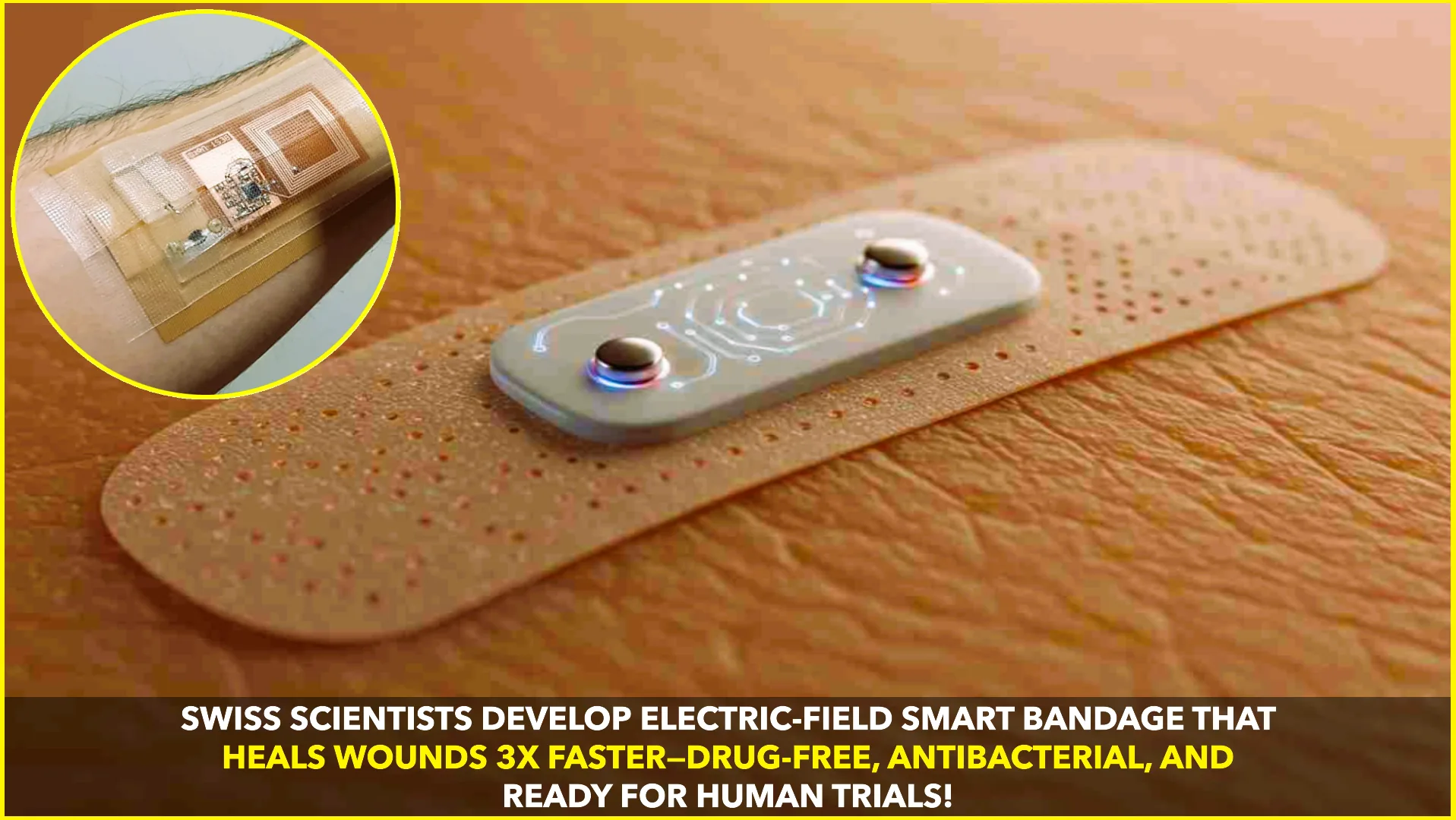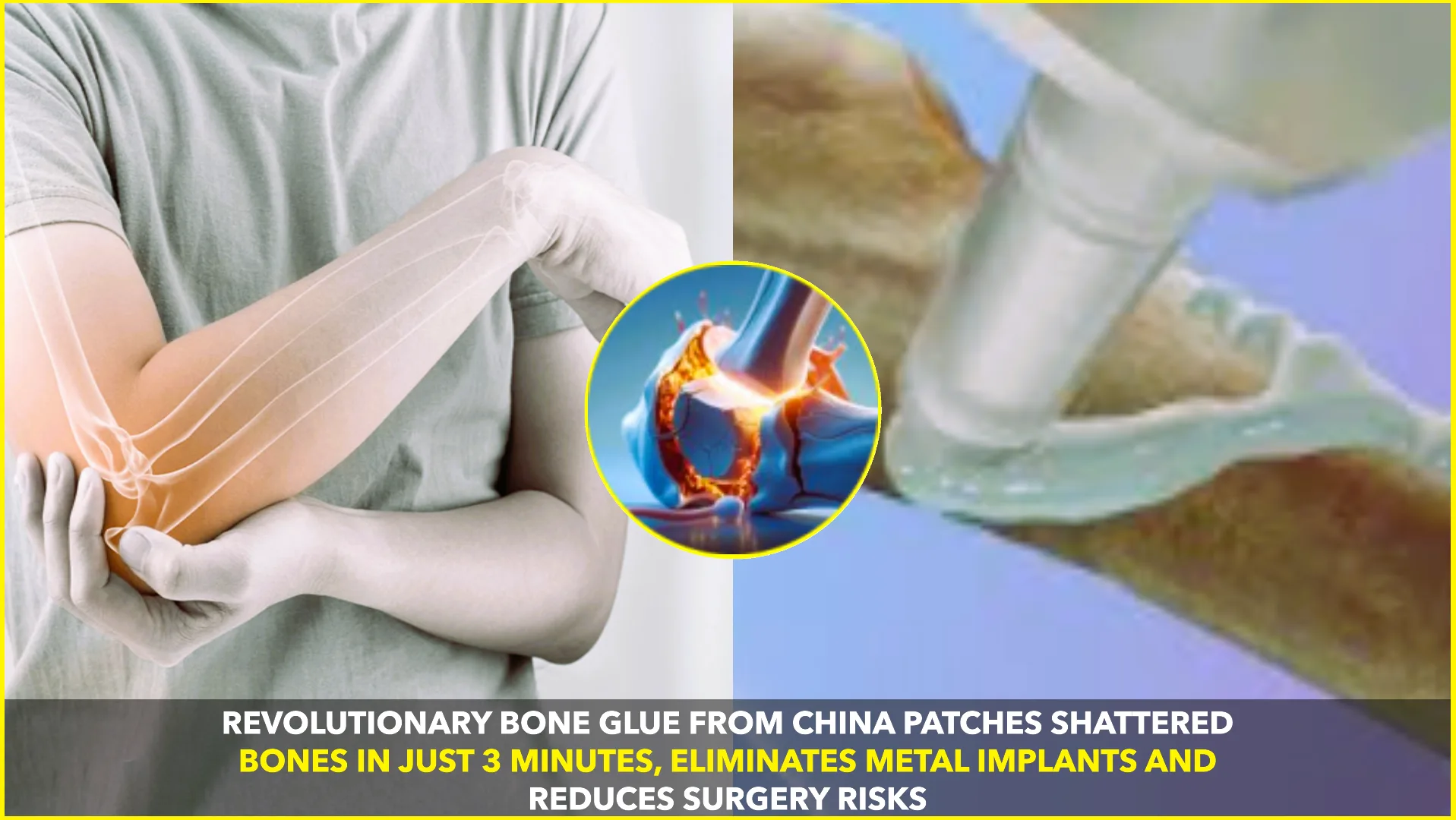Zurich, Switzerland: In a groundbreaking development in wound care technology, Swiss engineers have unveiled a smart bandage that significantly accelerates healing using miniature electric fields activated by wound moisture. Developed by researchers at the Swiss Federal Institute of Technology Lausanne (EPFL), the innovation promises to transform treatment for burn victims, diabetic patients, and others prone to chronic or slow-healing wounds.
The smart bandage, powered by a coin-sized disposable bio-battery, harnesses the principles of electrotherapy to stimulate tissue repair, promote cell regeneration, and combat bacterial infections—all without using drugs. In preclinical animal studies, wounds that typically took around 10 days to heal were reported to close in just 2 to 3 days, with noticeably reduced infection, inflammation, and scarring.
According to Dr. Marta Rinaldi, lead researcher at EPFL’s Laboratory of Soft Bioelectronic Interfaces, the device functions by generating mild electric fields when it detects moisture from the wound. “The body’s natural healing mechanisms can be enhanced by electric stimulation,” she said. “We designed a bioelectronic patch that only activates when the wound is wet, ensuring the electric field is delivered precisely when and where it’s needed.”
The electric fields not only encourage faster cell movement and proliferation—essential for tissue regeneration—but also break down bacterial biofilms, making infections easier to treat without antibiotics. This property holds great promise for reducing antimicrobial resistance, a growing global health concern.
The smart bandage is flexible, breathable, and designed to be disposable. The bio-battery it uses is activated by wound exudate and lasts several days, ensuring consistent therapeutic stimulation throughout the healing period. Its lightweight form factor makes it suitable for long-term application on sensitive skin areas, such as burn injuries.
Human clinical trials are expected to begin soon in collaboration with several European hospitals. The focus will initially be on treating severe burns and diabetic foot ulcers, which are notoriously slow to heal and prone to complications. If successful, the bandage could become a vital tool in modern medicine, especially in emergency and intensive care units.
Dr. Rinaldi emphasized that this innovation isn’t a replacement for traditional wound care but an enhancement. “We’re not replacing gauze or ointments,” she said. “We’re adding a layer of smart therapy that kicks in only when needed.”
The smart bandage represents the latest in a series of advances in wearable biomedical technology. It aligns with a broader trend toward personalized, non-invasive treatments that reduce drug dependency and accelerate recovery.
This development also opens the door to integrating real-time wound monitoring sensors in the future, offering healthcare providers better data and improving patient outcomes. Researchers are already exploring potential uses in remote care settings and battlefield medicine, where rapid wound management is crucial.
As the world looks for drug-free, high-tech solutions to common medical problems, innovations like this smart bandage could play a crucial role in the future of healthcare.
Source:
Swiss Federal Institute of Technology Lausanne (EPFL) – https://actu.epfl.ch/news/smart-bandage-speeds-up-healing/










